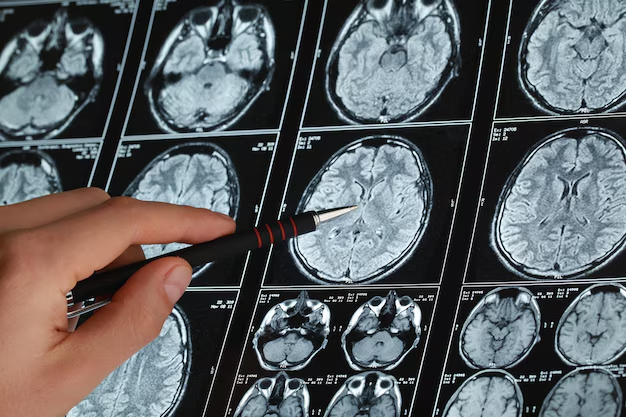Your Guide to How Does Parkinson's Affect The Brain
What You Get:
Free Guide
Free, helpful information about Parkinsons FAQ and related How Does Parkinson's Affect The Brain topics.
Helpful Information
Get clear and easy-to-understand details about How Does Parkinson's Affect The Brain topics and resources.
Personalized Offers
Answer a few optional questions to receive offers or information related to Parkinsons FAQ. The survey is optional and not required to access your free guide.
Understanding the Impact of Parkinson's on the Brain: What You Need to Know
Parkinson's disease is a progressive neurological disorder that significantly impacts the brain's functioning, leading to a variety of movement and cognitive challenges. Millions of individuals worldwide navigate the realities of living with this condition, yet understanding how Parkinson's affects the brain remains crucial for patients, caregivers, and medical professionals alike. Let's delve into the effects of Parkinson's on the brain and explore ways to support those affected.
How Parkinson's Changes Brain Chemistry
Parkinson's disease predominantly targets the basal ganglia, an area of the brain critical for regulating voluntary movements. The condition is characterized by the degeneration of dopamine-producing neurons, which inhibits the brain’s ability to control movement smoothly and effectively.
Dopamine Depletion: The depletion of dopamine—essential for communication between neurons—results in hallmark symptoms of Parkinson's such as tremors, stiffness, and bradykinesia (slowed movement).
Lewy Bodies: As the disease progresses, abnormal accumulations of alpha-synuclein proteins called Lewy bodies develop within neurons, further disrupting normal brain function.
The Broader Impact on Neurological Functions
While movement disorders are the most visible symptoms, Parkinson’s can also severely affect cognitive and emotional health. This aspect of the condition can be particularly challenging for patients and families.
Cognitive Decline: Some individuals experience Parkinson’s-related dementia, impacting memory, problem-solving, and other cognitive abilities.
Mood Disorders: Depression and anxiety are common, as chemical changes in the brain affect mood regulation.
Sleep Disturbances and Fatigue: These are prevalent and can exacerbate other symptoms, adding to the burden of disease management.
Navigating Financial Challenges in Managing Parkinson's
Dealing with Parkinson's extends beyond medical treatment; it often requires financial planning and resources. Managing long-term therapy, medications, and care can be overwhelming without adequate support. Fortunately, several options can alleviate the financial strain.
Government Aid Programs: Many governments offer disability benefits for those unable to work due to Parkinson's. Investigating such programs early can help secure needed support.
Health Insurance Plans: Having comprehensive health coverage is crucial. Re-evaluate your or your loved one’s insurance plan annually to ensure it covers the necessary treatments and medications.
Community and Nonprofit Support: Organizations dedicated to Parkinson's provide resources, from support groups to educational materials, sometimes including financial assistance.
Long-Term Financial Planning: Consider consulting with a financial advisor who specializes in healthcare-related financial planning. They can guide you through options like healthcare savings accounts, patient assistance programs, and tax deductions related to medical care.
Opportunities for Education and Advocacy
Education enhances understanding and empathy, while advocacy can lead to improvements in research funding and patient support.
Educational Grants for Caregivers: Many institutions offer learning opportunities for those providing care, ensuring they are well-prepared to handle complex medical needs.
Community Advocacy Groups: Encouraging participation in local Parkinson’s advocacy groups can amplify patient voices and drive change at community and legislative levels.
Exploring Support Options
Navigating the myriad challenges Parkinson's presents requires a combination of medical, emotional, and financial resources. Here’s a quick reference to valuable support avenues:
- 🏛 Disability Benefits: Explore eligibility and application processes for government aid programs.
- 🏥 Health Insurance: Ensure your policy covers the full spectrum of Parkinson’s treatments.
- 🎓 Educational Grants: Look into grants designed for caregivers and healthcare providers for enhanced care skills.
- ❤️ Support Groups: Join national and local groups for emotional and practical support.
- 💼 Financial Counseling: Seek guidance on managing medical expenses and long-term planning.
- 🌟 Advocacy Networks: Engage with advocacy groups to effect change and improve funding for research.
Understanding the multifaceted nature of Parkinson's not only empowers those directly affected but also fosters a more supportive community ready to address both neurological and financial challenges.
What You Get:
Free Parkinsons FAQ Guide
Free, helpful information about How Does Parkinson's Affect The Brain and related resources.

Helpful Information
Get clear, easy-to-understand details about How Does Parkinson's Affect The Brain topics.

Optional Personalized Offers
Answer a few optional questions to see offers or information related to Parkinsons FAQ. Participation is not required to get your free guide.


Discover More
- Are There Environmental Causes Of Parkinsons
- Can Alcohol Cause Parkinson's
- Can Concussions Cause Parkinson's
- Can Concussions Cause Parkinson's Disease
- Can Dogs Get Parkinson's Disease
- Can Dogs Get Parkinsons
- Can Dogs Have Parkinson's
- Can Dogs Have Parkinson's Disease
- Can Females Get Parkinson Disease
- Can Head Trauma Cause Parkinson's
